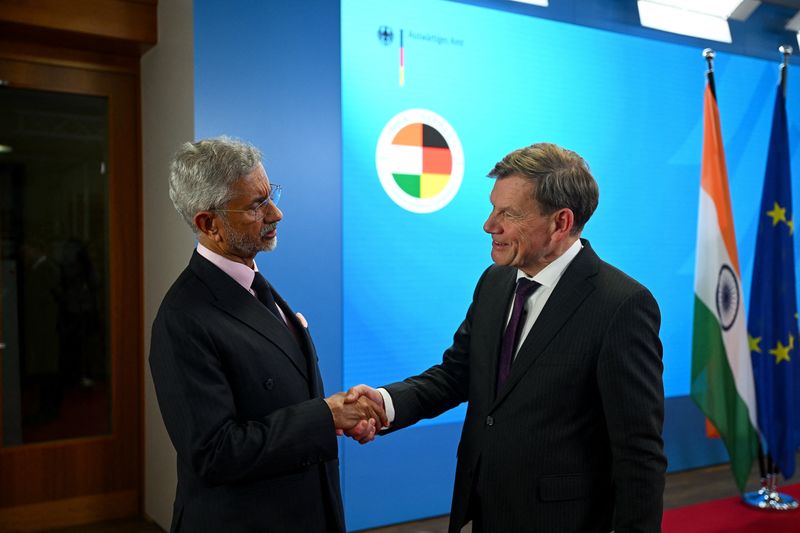THIS Wednesday, German Foreign Minister Johann Wadephul will visit India for the first time after taking charge. Wadephul hails from the far north of Germany — a region whose people are known for being rather matter of fact and down-to-earth — a trait that might bring some relief into a world that finds itself in a state of turmoil. A world in which headlines and big egos seem to spin the world much faster than we are used to, and into all kinds of unpredictable directions. For such times, we want to propose a foreign policy which is not overly noisy, or about showmanship.
You will easily find capitals that receive their state guests with more glamour than Berlin does. We do think that it is important to focus not on decorations and ornaments, not on fireworks and fanfare, but on solid foundations on which long-term strategic partnerships can grow and flourish. And we believe that our partnership with India is of that sort — that it will weather the current storms that are shaking up the international order.
India is our growing partner in trade and production lines, in science and technology, and in defence cooperation. Moreover, I believe that the ties between Berlin and Delhi will shape how we view and understand the Indo-Pacific in the coming years.
Military conflicts, the dangers of climate change and terrorism as well as a decline in the respect for international law are but a few concerns that currently preoccupy statesmen and women around the globe. As the official representative of a country that believes in the notions of peace and stability — just like India — I am convinced that our response to the current situation must be to strengthen our existing partnerships.
We should take this current turmoil as a reminder to refocus on what makes us strong: Not isolationism, but partnerships, not using trade to force through political gains, but working together to figure out trade arrangements that take all parties and interests into consideration. It is a true test to judge which partners to rely upon. This is not an easy task.
Germany, along with the European Union, has much to offer. Our partnership is based on shared values and mutual respect — let me point out that the EU, after India, is the second largest democracy in the world. We share common interests — like India, we believe in the importance of economic progress and development. The instrumentalisation of trade must be a concern to us all and should be countered jointly.
Before coming to Delhi, Wadephul will visit Bengaluru. In India’s south, he will get an impression of the country’s scientific ambitions and incredible talent pool. Numerous German companies have made Bengaluru a cornerstone of their R&D strategies, for good reasons.
And this brings me to another lifeline of our partnership with India. Today, more than ever before, we witness partnerships not only between our governments, but also strong and personal relations between our people. The smartest among Indian researchers are discovering Germany’s vibrant, competitive and world-class science ecosystem.
We want our universities to be open spaces for discussions, where the best and brightest from around the world are welcome. Let them post what they want on social media — as long as they are smart, adaptable and hard-working.
The numbers speak a clear language: Indian students trust the quality of German public universities. Within one year, their number has grown by around 20 per cent, to almost 60,000 students. Germany as a top destination for Indian talent is catching up with Anglophone countries at blazing speed. Many Indians are placing their future and their aspirations on Germany — and we hold the firm belief that immigration of educated people will make our economy stronger and our society more resilient.
Deciding on a country you chose for your future career is one of the most significant decisions you can take. A new centre for your life, maybe even the place where your children will grow up. You have to take many factors into consideration — how welcoming are society, administration and labour markets? Today, Germany has Europe’s most modern and liberal citizenship laws, and Indian students can stay up to 18 months after graduating to find a job.
Let us also talk about the elefant im raum — the German language. Not so difficult to decipher, right? This elephant in the room is actually a fairly familiar elephant — it is closely related to English. In fact, English will get you very far with German universities, in our top science institutions and in our large companies and cities. But learning German will open many more doors.
I regularly meet Indians who made Germany their new home, and I am often humbled by their impressive level of German. Indians amaze me with their ability to juggle between so many languages, be it Hindi, Punjabi, Tamil or Malayalam — and it seems that they all casually add German to the mix, after living there for some time.
At the beginning, you can easily get overwhelmed by the idea of mastering an entire new language, but think of German as something of a Hawa Mahal: A language where each new word and each expression you learn unlocks another small, magical window to peek into a new reality. And as you open more and more of them, the people that you see through these windows will greet you back and welcome you.
Next week, India will open its gates, doors and windows to Wadephul. I am convinced that he will come back to Berlin with many impressions of India’s great talents and sky-high ambition — its lively economy, its space flight prowess and the scale of its renewable energy parks — and with fresh ideas on how to take our partnership to the next level.
Philipp Ackermann is Germany’s ambassador to India.
